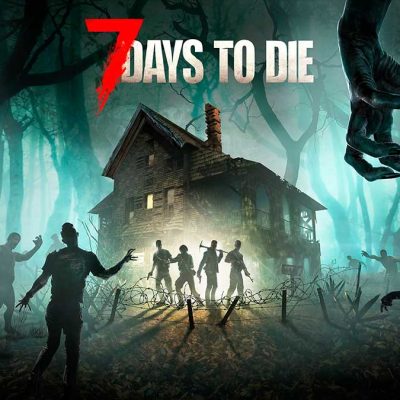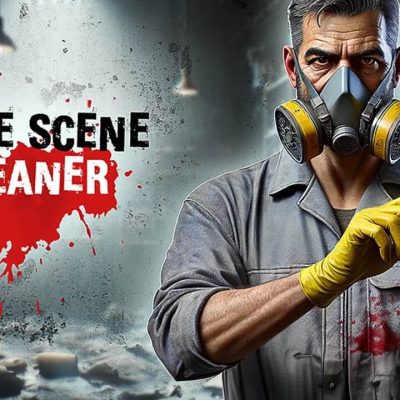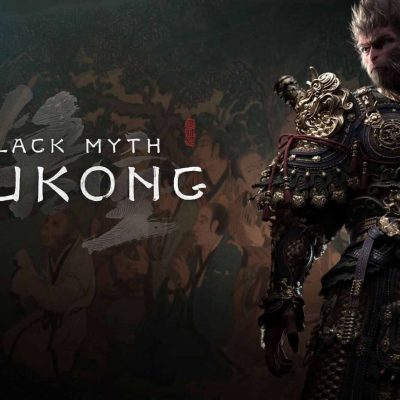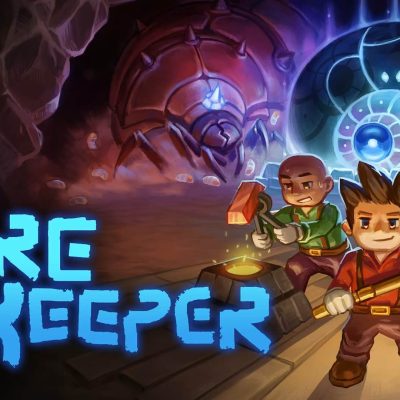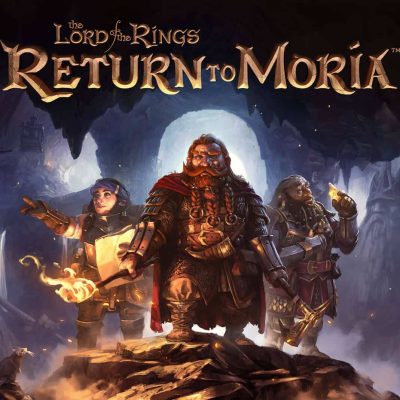In the world of indie gaming, innovation often emerges from blending unlikely genres, and Peglin is no exception. Combining pachinko mechanics with rogue-lite elements, Peglin offers a refreshing and addictive gameplay experience. With its charming visuals, strategic depth, and endless replayability, this game has captured the attention of casual gamers and hardcore enthusiasts alike. This detailed review will explore every facet of Peglin, highlighting its features, mechanics, strengths, and areas for improvement.
What is Peglin?
Developed by Red Nexus Games, Peglin is a rogue-lite game where players take on the role of a mischievous goblin exploring a world filled with danger and treasure. The game’s unique hook lies in its combat system, which is inspired by pachinko, a popular Japanese game involving balls dropped into a pegged board. Each level presents a mix of challenges, including enemies to defeat, treasure to collect, and strategic decisions to make.
Core Gameplay Mechanics
The Pachinko Board
At the heart of Peglin is its pachinko-inspired combat system. Players launch orbs from the top of a pegged board, and as the orbs bounce off pegs, they generate damage or trigger special effects. The goal is to strategically aim and time shots to maximize damage against enemies positioned at the top of the screen.
- Peg Types: The board features different types of pegs, each with unique effects. Regular pegs add standard damage, while critical pegs amplify damage when hit. There are also bomb pegs that explode and deal area-of-effect damage. Refresh pegs reset all used pegs, giving players an opportunity to sustain long chains of hits.
- Orb Variations: Players have access to a wide array of orbs, each with distinct properties. For example, stone orbs deal basic damage, while fire orbs ignite pegs for ongoing damage. Healing orbs restore health, while multiball orbs split into multiple projectiles for increased peg hits. The variety encourages experimentation and strategic planning, as each orb interacts differently with the board.
Rogue-lite Progression
As a rogue-lite, Peglin offers procedurally generated levels and a sense of progression between runs. Here are some key elements:
- Randomized Levels: No two playthroughs are the same, thanks to randomly generated boards, enemies, and treasures. Each run feels fresh, presenting new combinations of challenges and rewards.
- Persistent Upgrades: While death resets most progress, players can unlock permanent upgrades and orbs that enhance future runs. Artifacts found during gameplay provide game-changing effects, such as doubling damage on specific pegs or adding passive healing between battles.
- Difficulty Scaling: As players advance, enemies become tougher, and boards grow more complex, keeping the challenge engaging. Boss battles introduce additional layers of strategy, requiring precise aiming and resource management.
Strategic Elements
Peglin isn’t just about mindlessly launching orbs. Strategy plays a significant role:
- Choosing Your Path: Players navigate a map with branching paths, deciding whether to pursue combat, treasure, or elite enemies for greater rewards. Each choice can significantly impact the success of a run.
- Managing Resources: Health, orbs, and upgrades must be carefully managed. Taking unnecessary damage or failing to optimize shots can lead to an early demise. Balancing risk and reward is essential.
- Adapting to Randomness: Luck is a factor in Peglin, but skillful aiming and resource management can mitigate its impact. Learning how different orbs and artifacts interact with the board is key to success.
Graphics and Audio
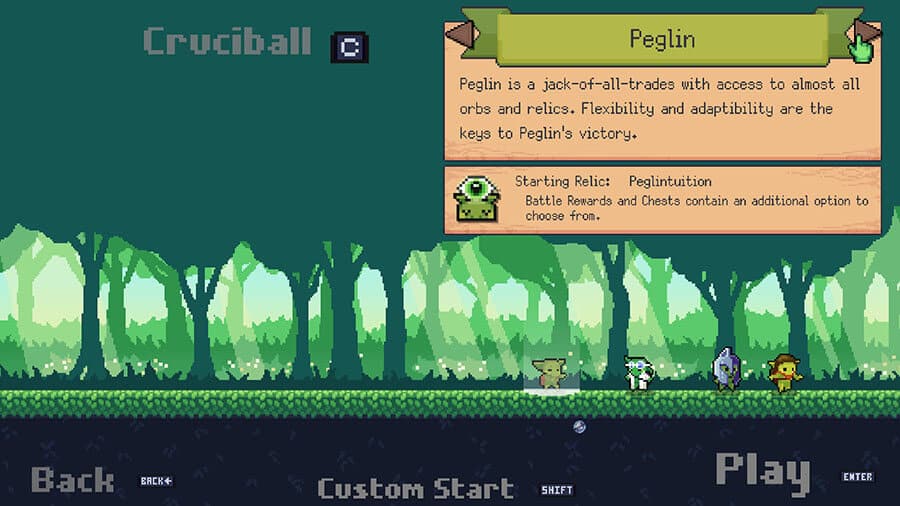
Visual Style
Peglin features charming, cartoonish graphics that appeal to players of all ages. The goblin protagonist is endearing, and the environments are colorful and varied. Each board is thoughtfully designed, with visual cues that help players strategize their shots. Boss designs are particularly creative, ranging from giant tree monsters to fearsome armored knights.
Sound Design
The game’s sound effects are satisfying, with the clinks and bounces of orbs adding a tactile quality to the gameplay. The music is light and whimsical, complementing the game’s playful tone. However, some players may find the soundtrack repetitive over extended sessions. Customizing audio settings or adding new tracks could enhance the experience further.
Replayability and Depth
Peglin’s rogue-lite mechanics and randomized elements ensure incredibly high replayability, making each session feel like a new adventure. This section explores why Peglin has such lasting appeal and what makes its depth so engaging.
Diverse Orb Selection and Synergies
One of the key factors contributing to Peglin’s replayability is its wide range of orbs. Each orb has unique abilities, from basic stones to elemental orbs that deal fire or lightning damage. The game also allows players to upgrade orbs, enhancing their damage or unlocking additional effects. Combining orbs with complementary artifacts can lead to powerful synergies. For instance, pairing a Multiball orb with artifacts that refresh pegs creates endless opportunities for massive combos. Experimenting with different orb builds encourages players to refine their strategies and keeps gameplay exciting.
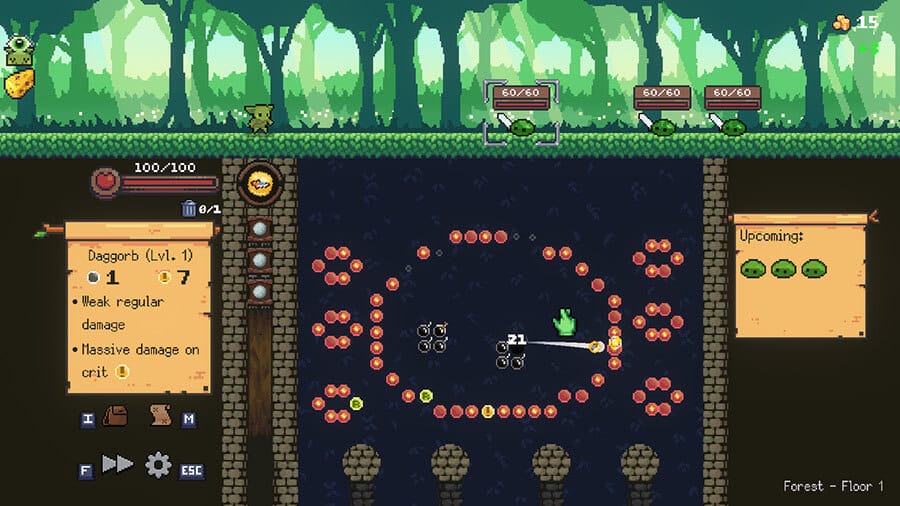
Dynamic Enemies and Challenges
Peglin’s enemies are varied and increase in complexity as the player progresses. Early encounters with simple slimes gradually give way to battles with heavily armored knights or magical foes with unique abilities. Boss battles introduce additional layers of challenge, requiring careful planning and precise execution. The unpredictability of enemy patterns ensures that even experienced players must adapt their strategies.
Branching Paths and Exploration
Each run presents players with a map featuring branching paths. Deciding which path to take—whether to focus on battles, treasure, or healing—adds a layer of strategy to the game. Special events on the map, such as hidden treasure rooms or encounters with mysterious characters, provide additional opportunities for rewards or unexpected challenges. These decisions make each playthrough unique and engaging.
Hidden Secrets and Special Events
Peglin rewards exploration with hidden secrets and special events that can dramatically alter the course of a run. Some events offer rare artifacts, while others introduce unique challenges that test a player’s adaptability. Discovering these secrets adds an element of surprise and encourages players to experiment with different paths.
Procedural Generation and Infinite Variety
The procedural generation of levels, enemies, and treasures ensures that no two runs are the same. This randomness keeps the game fresh and unpredictable, requiring players to think on their feet. While skill and strategy play significant roles, adapting to the ever-changing landscape is crucial for success. Procedural generation also allows Peglin to scale in difficulty organically, providing a satisfying challenge for players of all skill levels.
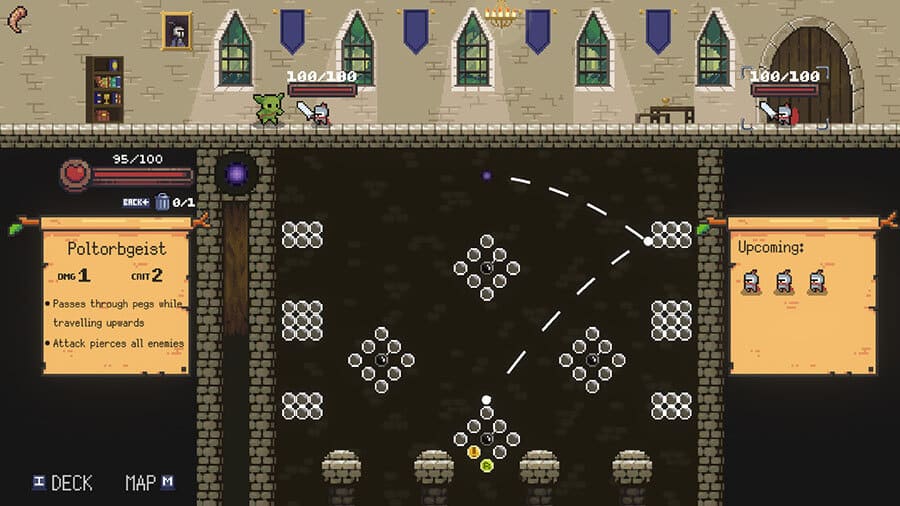
Artifacts and Meta Progression
Artifacts are game-changing items that add depth and variety to each run. From doubling damage on critical hits to granting passive healing between battles, artifacts can significantly influence a player’s strategy. The meta progression system allows players to unlock new orbs and artifacts over time, creating a sense of long-term achievement. This progression ensures that even after dozens of runs, players have new content to explore and master.
Endless Replayability for All Skill Levels
Peglin’s balance of luck, skill, and strategy ensures that it appeals to a broad audience. Casual players can enjoy the game’s whimsical visuals and simple mechanics, while hardcore gamers can dive into its complex synergies and challenging encounters. The combination of accessible gameplay and deep strategic elements creates a game that remains enjoyable for hundreds of hours.
Pros and Cons
Pros
- Unique Gameplay: The pachinko-inspired mechanics set Peglin apart from other rogue-lites.
- Strategic Depth: Balancing randomness with skillful planning creates an engaging experience.
- Charming Aesthetics: The visuals and sound design are delightful and cohesive.
- Replayability: Procedurally generated levels and a wide variety of orbs keep the game fresh.
- Accessible Yet Challenging: Peglin’s simple mechanics are easy to learn, but mastering the game takes practice.
- Frequent Updates: The developers actively improve the game, adding new content and balancing features based on player feedback.
Cons
- Repetitive Soundtrack: While pleasant, the music can grow monotonous over long sessions.
- Luck-Dependent: Some runs feel overly reliant on RNG, which can frustrate players.
- Steep Difficulty Curve: New players may struggle with the unforgiving nature of rogue-lite mechanics.
- Short Runs: While engaging, some players may find the average run length too brief compared to other rogue-lites.
Tips for New Players
- Aim for Critical Pegs: Prioritize hitting critical pegs to maximize damage. Refreshing the board can help set up better opportunities.
- Balance Risk and Reward: Taking on elite enemies can yield great rewards but may end your run prematurely. Assess your current health and resources before engaging.
- Experiment with Orbs: Try different combinations to discover synergies that suit your playstyle. Don’t hesitate to upgrade orbs that align with your strategy.
- Plan Your Path: Use the map to chart a course that balances combat, treasure, and healing opportunities. Avoid taking unnecessary risks when low on health.
- Learn Enemy Patterns: Understanding how enemies behave can help you prioritize targets and plan your shots effectively.
Future Potential
Peglin’s developers have shown a commitment to improving and expanding the game through updates. Potential future additions include:
- New Orbs and Peg Types: Expanding the arsenal of tools available to players. Introducing orbs with unique mechanics, such as teleportation or gravity effects, could add depth.
- Additional Bosses: Introducing more challenging encounters to test advanced strategies. Multi-phase bosses could further diversify gameplay.
- Expanded Lore: Adding depth to the game’s story and world. Including dialogue or cutscenes could enhance immersion.
- Multiplayer Modes: Competitive or cooperative gameplay could enhance the experience. Imagine racing against other players or teaming up to defeat powerful bosses.
- Seasonal Events: Limited-time events with exclusive rewards could keep the community engaged.
Conclusion
Peglin is a delightful blend of pachinko mechanics and rogue-lite gameplay that offers a unique and addictive experience. Its charming visuals, strategic depth, and high replayability make it a standout title in the indie gaming scene. While it has areas for improvement, particularly in its soundtrack and content variety, Peglin’s core gameplay is strong enough to keep players coming back for more. Whether you’re a fan of rogue-lites, puzzle games, or just looking for something fresh and fun, Peglin is well worth your time.



